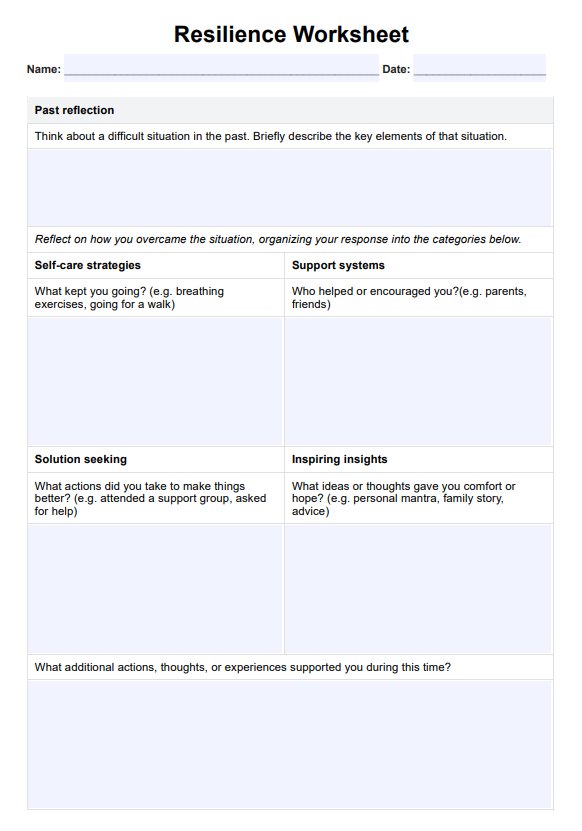Resilience Worksheets serve as practical tools for individuals and groups to develop and strengthen their ability to bounce back from challenges. They provide structured exercises, reflections, and activities to build coping skills, foster emotional resilience, and promote personal growth.

Resilience Worksheet
Empower your client's personal growth to navigate challenges with our Resilience Worksheet. Get it for free today!
Resilience Worksheet Template
Commonly asked questions
Resilience Worksheets are designed for a diverse audience, including students, parents, educators, mental health professionals, and those facing various life challenges. The versatility of these worksheets makes them applicable in educational, therapeutic, workplace, and community settings.
Resilience Worksheets can be integrated into daily routines, educational curricula, therapeutic sessions, workplace wellness programs, and community workshops. They can be used for self-guided reflection, group discussions, or structured programs to build resilience, manage stress, and enhance overall well-being.
EHR and practice management software
Get started for free
*No credit card required
Free
$0/usd
Unlimited clients
Telehealth
1GB of storage
Client portal text
Automated billing and online payments











